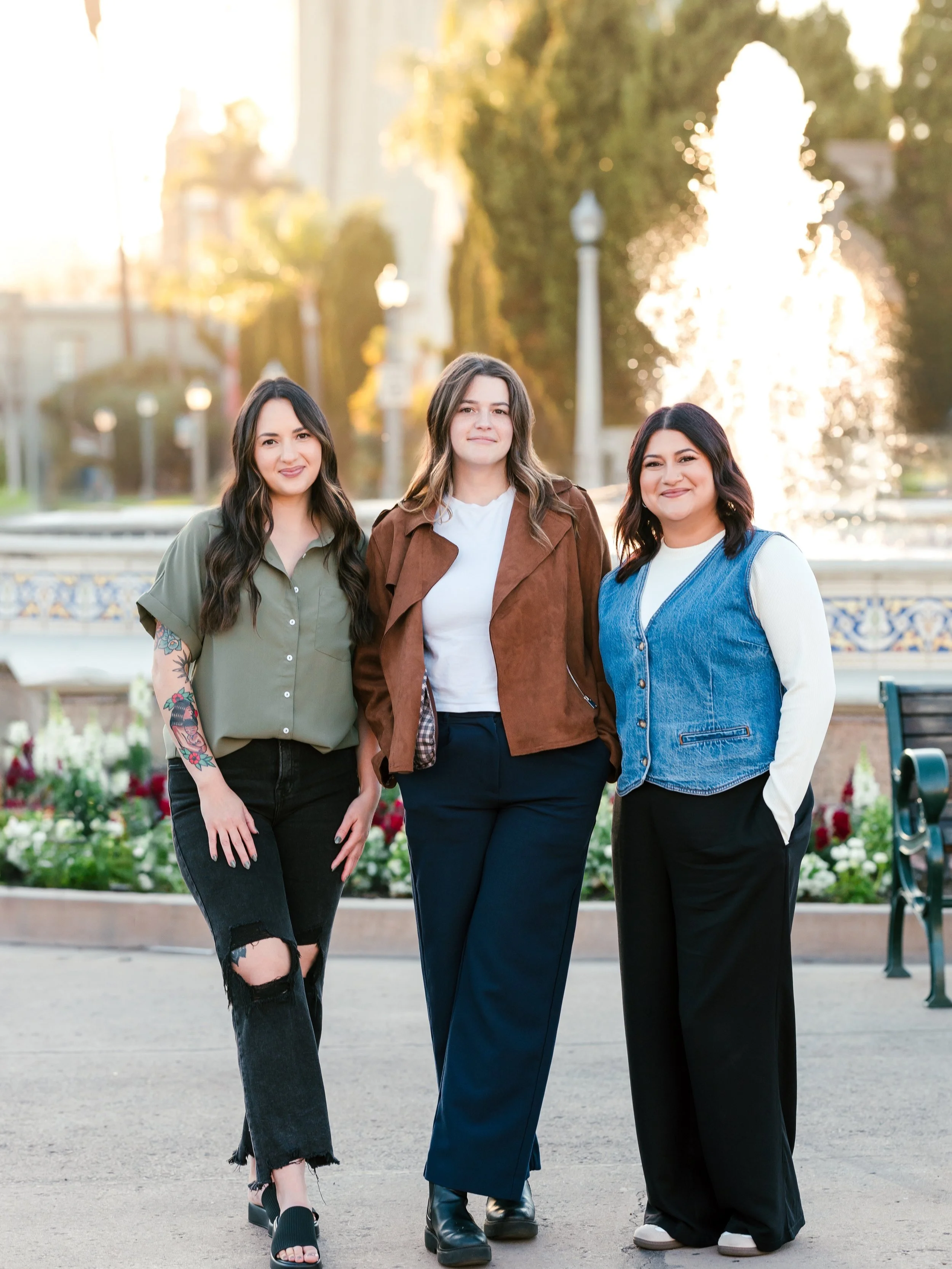
Eating Disorder Recovery Coaching
Virtual Worldwide Eating Disorder Recovery Coaching
Overview
Recovery coaching is a present- and future-focused service designed to support individuals navigating eating disorder recovery, OCD challenges, and body image struggles in real time. Unlike therapy, which often focuses on deep processing, underlying trauma and diagnosis, recovery coaching is action-oriented, goal-based, and flexible — offering support where you need it most: at home, in the grocery store, during meals, or online. Recovery coaching can help you implement coping strategies in real time. Many of our clients like this option so that they can focus on processing work with their therapist, but still have a space to practice new skills that are essential to Eating Disorder and/or OCD recovery. Whether you're seeking eating disorder recovery coaching in San Diego or virtual recovery coaching worldwide, we’re here to walk beside you.
Recovery coaching is ideal for:
Clients in eating disorder recovery needing practical, hands-on support
People managing OCD and looking for help resisting compulsions in daily life
Those feeling stuck in body image work and needing extra accountability to implement new coping strategies
Clients who already have a therapist but want additional between session support to reinforce therapeutic goals.
Clients seeking real time support with meals and/or challenge foods.
Anyone around the globe (coaching is available internationally)
Note: Coaching is not a replacement for therapy and does not include trauma processing or diagnosis. Coaching is not available for insurance reimbursement.
Coaching Approach
While recovery coaching is not therapy, our approach is informed by clinical knowledge, lived experience, and anti-oppression principles. Coaching emphasizes:
Present-moment support for eating disorder and OCD recovery
Collaborative goal-setting
Behavioral support for exposures and meal challenges
Creative, embodied strategies that build confidence
Non-pathologizing care — we see you as a whole person, not a diagnosis
All of our coaches have backgrounds as therapists and are qualified mental health professionals.
All of our coaches have lived experience with recovery from Eating Disorders or OCD
Common Client Goals
Reduce ED behaviors and resist compulsions in the moment
Build confidence in food exposures, meals, or shopping challenges
Heal negative body image and build self-trust
Practice coping skills in real-world situations
Develop sustainable routines around eating and self-care
Strengthen motivation, accountability, and recovery momentum
Have accountability for reaching recovery oriented goals
Session Structure
Coaching sessions are flexible and adapted to your needs. They may include:
Virtual coaching from anywhere in the world
In-person coaching (Southern California only)
Support during:
Meal times
Grocery shopping
Cooking
Clothing shopping
Food exposures
Body image exercises
1:1 coaching sessions are 50 minutes long (unless otherwise agreed upon with provider), with frequency tailored to your recovery needs and goals
Special Features
Available worldwide
Meal and exposure support (virtual or in-person in Southern CA)
FaceTime-style coaching for real-time activities
Coaching can complement therapy or act as a stand-alone resource (depending on client severity and medical clearance)
Grounded in lived experience and Health at Every Size® principles
Anti-diet, anti-oppression, inclusive of race, gender, sexuality and disability.
All of our coaches have backgrounds as therapists
All of our coaches have lived experience of either their own Eating Disorder or OCD
Collaborative Process
In recovery coaching, you lead. We co-create goals that feel achievable and meaningful — then we work together to implement them with support and accountability. If you're working with a therapist, dietitian, or treatment team, we’re happy to collaborate. If you're working solo, we’ll help you build your own structure for healing.
Client Experience
Clients describe recovery coaching as empowering, practical, and validating. Whether it's eating a fear food, navigating a triggering situation, or learning to “unlearn” diet culture in real time, coaching helps you take brave action in the here and now. You’ll feel seen, supported, and never alone in your recovery — especially during the hardest moments.
Long-Term Benefits
Increased capacity to resist Eating Disorder (or OCD) urges and behaviors in daily life
Greater confidence using coping skills in real-world settings
Improved relationship with food, body, and routine
Reduced fear and avoidance around food, movement, or social situations
Ongoing accountability without judgment or pressure
An empowered recovery journey, less isolating
Improved connection to self and others
More brain space to pursue your truest passions (not an ED!)
Ready to start therapy?
⟡
Ready to start therapy? ⟡
At Eating Disorder OCD Therapy, we offer compassionate, empowering care informed by a blend of evidence-based treatment, liberation psychology, and wisdom from lived experience. Our work prioritizes autonomy, collaboration, consent, and trust, and above all else- we strive to create a space where clients feel understood rather than pathologized.
We provide therapy for Eating Disorders, OCD, Body Image concerns, Trauma, and Perinatal Mental Health. We also offer Ketamine Assisted Psychotherapy (KAP), Group Therapy (globally), Recovery Coaching (globally), and Clinical Consultation and Supervision for clinicians. We are neurodiversity affirming, queer and trans affirming and strive to be actively anti-racist. We are currently accepting new clients for in-person therapy in San Diego, as well as virtual therapy services in California, Washington, Utah, Tennessee, Maryland, and Florida.




